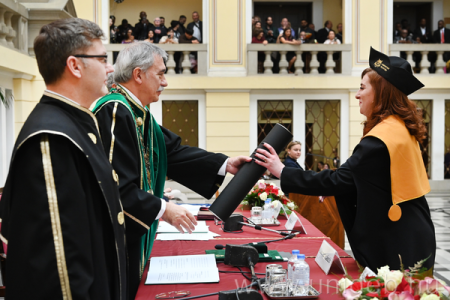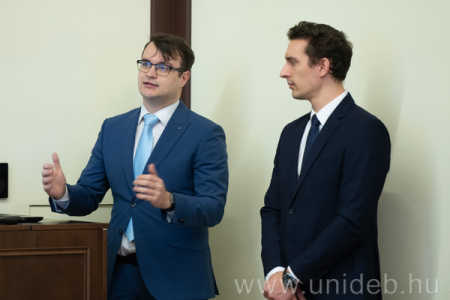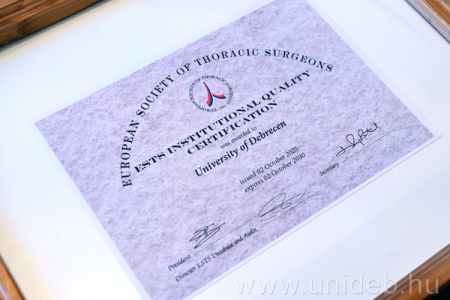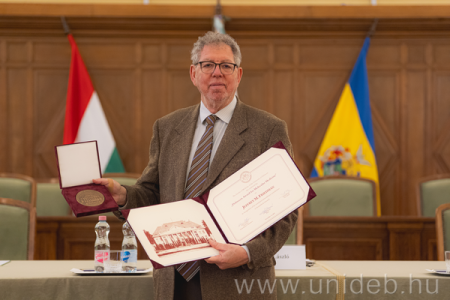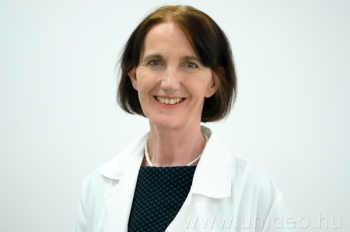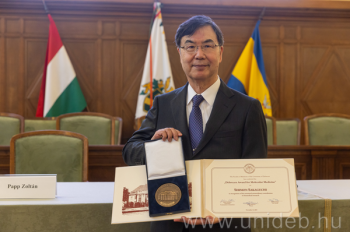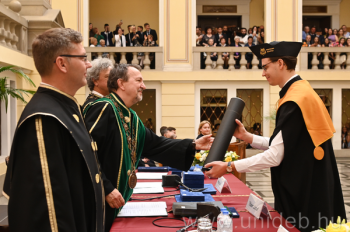A group of recently graduated Hungarian and international students of the Faculty of Medicine at the University of Debrecen took their official medical oath on Saturday. At the ceremonial council meeting of the Faculty of Medicine, fifty-nine of these physicians received their diplomas.
Hírek Faculty of Medicine címkével
Students of the University of Debrecen did pretty well at this year’s NeuroSpark Hackathon held in Elche, Spain. Our contestants, representing the Faculty of Economics and Business, the Faculty of Engineering and the Faculty of Informatics, competed as members of international teams focusing on potential solutions of problems related to the nervous system and managed to achieve significant results.
Two UD students, who are the recipients of Excellence PhD Scholarship from the foundation Count István Tisza Foundation for the University of Debrecen, have participated in an international course held at the University of Reykjavík in Iceland, focusing primarily on the skills essential for innovation-based entrepreneurship. These doctoral students then reported on their personal professional experiences to their peers, who are also exemplary students of the University of Debrecen.
Thoracic Surgery Department (TSD) of the Surgical Clinic of the University of Debrecen has once again received accreditation from the European Society of Thoracic Surgeons (ESTS), confirming that this institution provides European-level care to patients. TSD first earned this prestigious international certification back in 2012, becoming the first such institution in Eastern Europe to do so. Since then, the certificate has had to be reearned every five years based on strict criteria.
The number of foreign students at the University of Debrecen has continued to grow, with almost 7,800 students studying at UD in the 2025/2026 academic year. Attila Jenei, Director of the Coordinating Center for International Education, advocates the continuous development of the English-language training system to maintain the popularity of the institution in the international student market and to increase competitiveness.
The Faculty of Medicine of the University of Debrecen awarded this year’s Debrecen Prize for Molecular Medicine to molecular geneticist Jeffrey M. Friedman, a medical researcher at the Rockefeller University of New York. The professor and his colleagues identified leptin, a hormone produced by adipose tissue, which plays a role in regulating body weight. Professor Jeffrey M. Friedman received the award at a ceremony held at the University of Debrecen on Tuesday, after which he gave a lecture on the causes and treatment options of obesity.
Dr. Ildikó Horváth, Director of the Pulmonology Clinic and Professor of the University of Debrecen, will be serving for the next three years as Secretary General of the European Respiratory Society (ERS). The new leader was elected last year and she was formally inducted at the most recent conference of this European organization. She will be the first Hungarian professional to hold the high position of Secretary General.
This year's Nobel Prize in Physiology or Medicine goes to Mary E. Brunkow and Fred Ramsdell of the United States and Shimon Sakaguchi of Japan. In 2023, the Japanese professor's scientific work was recognized with the Debrecen Award for Molecular Medicine by the Faculty of Medicine at the University of Debrecen. Since the award was established, the professor at Osaka University is the third recipient to receive a Nobel Prize.
The most recent graduates from the Faculty of Medicine at the University of Debrecen were declared doctors on Friday. There were as many as 147 medical doctors of Hungarian and foreign nationality receiving their diplomas at the ceremony.
What does Client Gate have to do with Tibor Kapu becoming an astronaut? What could have silenced the otherwise rather talkative Shux and Tibor Kapu for six minutes on board the spacecraft named Grace? What does it mean in terms of space travel when a file upload gets stuck? These, among other things, as well as the process of becoming an astronaut and the special professional relationship between them were the topics discussed by research astronaut Kapu and astronaut candidate Gyula Cserényi in the theater hall of the University of Debrecen on Wednesday at an interview conducted by Vice Rector for Academic Affairs László Csernoch.
